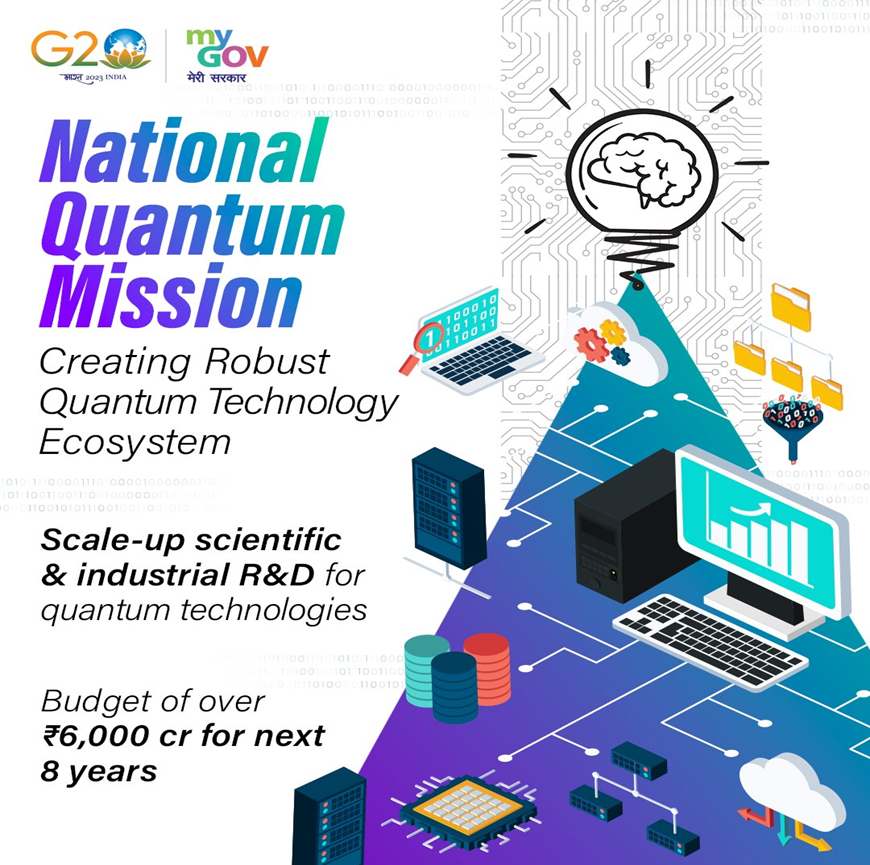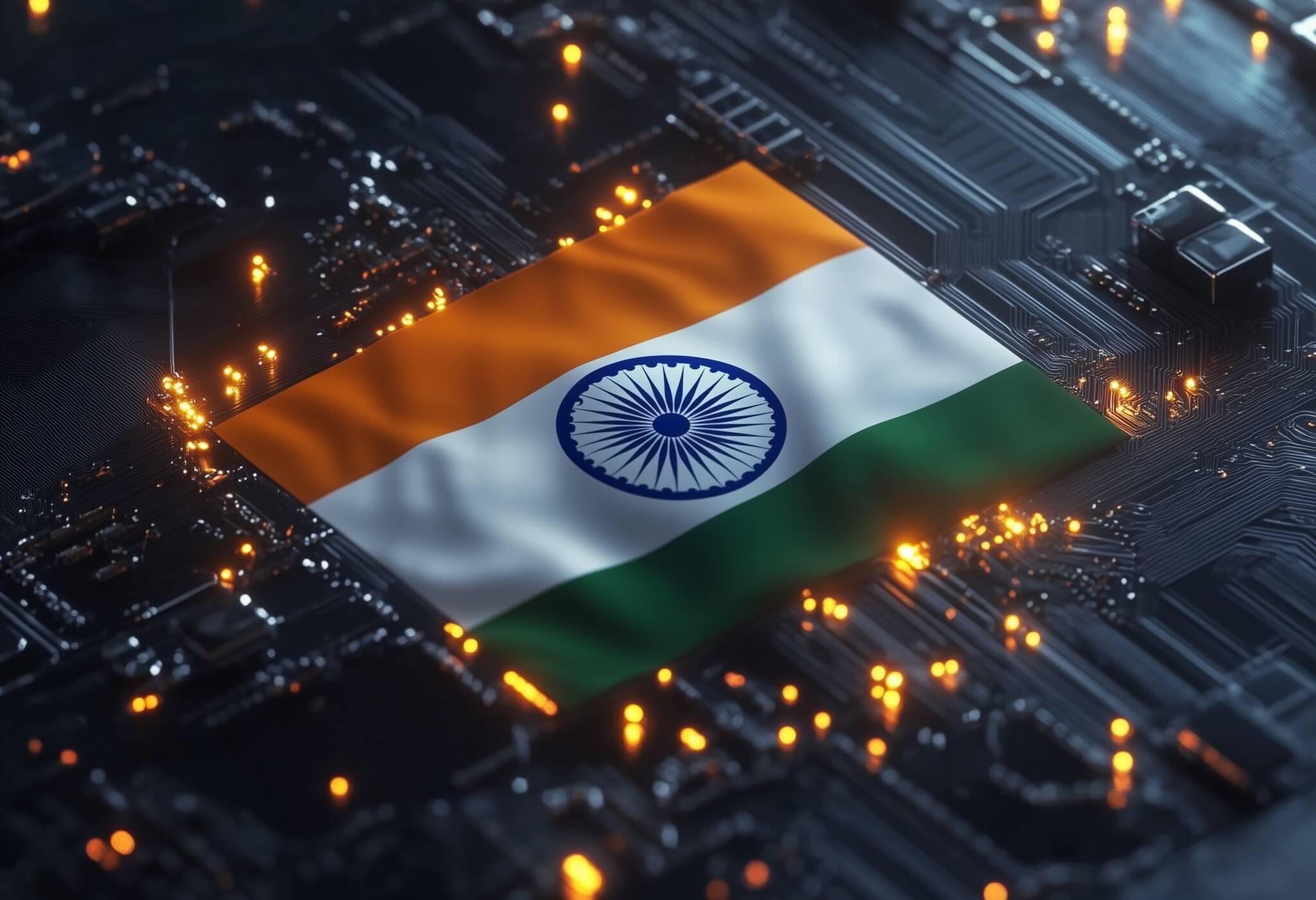As the world moves towards a technology-driven future, securing data against emerging threats has become increasingly important. One of the most significant threats comes from quantum computers, which could potentially break current encryption methods. In response to this, India has launched the National Quantum Mission (NQM), a groundbreaking initiative aimed at transforming communication and computing. Approved in 2023 with a budget of Rs 6,000 crore, the mission will run until 2031 and focuses on leveraging quantum technologies to create next-generation communication systems.
- A key aspect of the mission is India’s Quantum Satellite Initiative, which will establish a quantum communication network. This network will utilize quantum cryptography, an advanced technology that promises unparalleled security for sensitive information. By investing in quantum research and innovation, India is positioning itself as a global leader in the development of secure, cutting-edge technologies for the future.
What is the National Quantum Mission?
The National Quantum Mission is a program developed by the Department of Science & Technology (DST) to advance the practical applications of quantum mechanics. Quantum mechanics governs the behavior of matter and energy at extremely small scales. Harnessing its properties is expected to unlock powerful technologies for computing, communication, and sensing. The mission aims to explore how quantum physics can overcome the limitations of classical physics, which has driven technologies like telecommunications, artificial intelligence, and weather forecasting. As classical technologies approach their theoretical limits, quantum devices offer potential solutions by exploiting quantum phenomena like superposition and entanglement.

India’s Quantum Satellite: A Step Towards Secure Communication
One of the major objectives of the NQM is the launch of a quantum satellite to explore quantum technologies for secure communication. This satellite will help establish a quantum communication network capable of transmitting information securely using quantum cryptography. Quantum satellites enhance communication security by employing encryption methods based on quantum mechanics, which are inherently more secure than traditional methods. With the growing threat from quantum computers that could potentially break current encryption techniques, quantum satellites are seen as a solution to ensure data integrity and confidentiality.
Quantum Computing: Revolutionizing Information Processing
Quantum computing is revolutionizing information processing by utilizing the principles of quantum mechanics. Unlike classical computers that use binary bits, quantum computers use quantum bits (qubits), which can exist in multiple states simultaneously. This allows quantum computers to solve specific problems much faster than classical systems. Quantum computers rely on specialized components due to the delicate nature of quantum states, including:
- Qubits: Represented by superconducting circuits, trapped ions, or defects in diamonds.
- Quantum Logic Gates: Operations like Hadamard, CNOT, and SWAP gates manipulate qubits and require precise control via lasers or microwave pulses.
Key Principles of Quantum Computing
1. Superposition: Unlike classical bits, qubits can exist in multiple states simultaneously, allowing quantum computers to perform parallel calculations.
2. Quantum Entanglement: When qubits become entangled, the state of one qubit affects the other, enabling complex computations beyond the reach of classical systems.
3. Quantum Interference: Quantum particles interfere with one another to amplify correct solutions and cancel out incorrect ones, optimizing the computation process.
4. Quantum Tunneling: Quantum particles can pass through barriers that are insurmountable in classical physics, crucial for certain quantum computing hardware.
Quantum vs. Classical Computing
|
Aspect |
Classical Computing |
Quantum Computing |
|
Basic Unit |
Binary Bit (0 or 1) |
Qubit (0, 1, or superposition of both) |
|
Parallelism |
Sequential Processing |
Massive Parallelism through Superposition |
|
Hardware |
Silicon Chips at Room Temperature |
Cryogenic Quantum Processors |
|
Programming |
Step-by-Step Instructions |
Interference for High Probability Solutions |
|
Speed |
Fixed Rate |
Potential for Exponential Speedup |
|
Accuracy |
Precise Output |
Analog Behavior with Quantum Error Correction |
Quantum Supremacy
Quantum supremacy refers to quantum computers performing tasks that classical computers cannot. In 2019, Google’s Sycamore processor achieved this by solving a problem in 200 seconds that would take classical supercomputers 10,000 years.
Applications of Quantum Computing
- Search & Optimization: Quantum algorithms, like Grover’s algorithm, can speed up data retrieval and optimization tasks.
- Chemical Simulation: Quantum computing can precisely simulate complex chemical reactions, transforming industries such as pharmaceuticals and materials science.
- Artificial Intelligence: Quantum machine learning has the potential to improve pattern recognition and decision-making processes.
How Quantum Physics Secures Communications
Quantum cryptography, especially Quantum Key Distribution (QKD), is a revolutionary approach to secure communication. Unlike classical encryption, which relies on the complexity of algorithms, quantum encryption guarantees security based on quantum laws. In QKD, the encryption key is encoded in quantum bits (qubits), typically using photons (light particles).
The Role of Quantum Key Distribution (QKD)
QKD works by exploiting quantum measurement, which states that measuring a quantum system alters its state. If an eavesdropper attempts to intercept the key transmission, they disturb the system, revealing their presence. This principle provides a level of security beyond traditional cryptographic methods. Additionally, quantum entanglement ensures that any alteration of one entangled particle immediately affects the other, making it almost impossible for an eavesdropper to tamper with the transmission without detection.
Challenges and Limitations of QKD
Despite its theoretical security, QKD faces challenges in practical implementation, including:
1. Authentication Issues: QKD lacks a reliable way to authenticate the source of the quantum key transmission, creating potential security gaps.
2. Infrastructure Constraints: QKD requires specialized hardware, which is costly and difficult to upgrade.
3. Increased Costs: The need for specialized quantum hardware increases the cost of QKD implementation.
4. Practical Security: QKD's security depends on the integrity of the hardware, which can still be compromised.
5. Denial-of-Service Attacks: Eavesdropping on a QKD transmission can disrupt the system, potentially rendering it inoperable.
Despite these challenges, QKD has proven successful in tests over long distances, such as trials conducted by India in collaboration with the Raman Research Institute in Bengaluru.
Conclusion: The Path Forward
India’s focus on quantum technologies aims to reduce reliance on traditional communication methods that could be vulnerable to quantum attacks. The Quantum Satellite under the National Quantum Mission will significantly advance the development of secure communication networks that can withstand the computational power of future quantum computers. This satellite will test quantum communication over long distances, potentially linking remote regions and securing government communications. The role of quantum entanglement will be crucial in enhancing communication security.
| Main question: Examine the potential impact of quantum computing on India’s economy and security. What steps should India take to harness this technology? |







